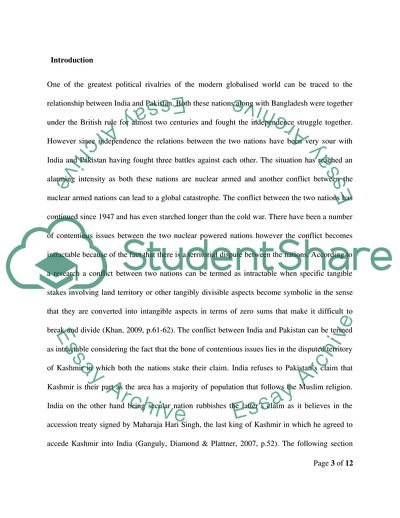Cite this document
(Why Has the Conflict between India and Pakistan Been So Intractable Case Study Example | Topics and Well Written Essays - 2250 words - 1, n.d.)
Why Has the Conflict between India and Pakistan Been So Intractable Case Study Example | Topics and Well Written Essays - 2250 words - 1. https://studentshare.org/politics/1764121-why-has-the-conflict-between-india-and-pakistan-been-so-intractable
Why Has the Conflict between India and Pakistan Been So Intractable Case Study Example | Topics and Well Written Essays - 2250 words - 1. https://studentshare.org/politics/1764121-why-has-the-conflict-between-india-and-pakistan-been-so-intractable
(Why Has the Conflict Between India and Pakistan Been So Intractable Case Study Example | Topics and Well Written Essays - 2250 Words - 1)
Why Has the Conflict Between India and Pakistan Been So Intractable Case Study Example | Topics and Well Written Essays - 2250 Words - 1. https://studentshare.org/politics/1764121-why-has-the-conflict-between-india-and-pakistan-been-so-intractable.
Why Has the Conflict Between India and Pakistan Been So Intractable Case Study Example | Topics and Well Written Essays - 2250 Words - 1. https://studentshare.org/politics/1764121-why-has-the-conflict-between-india-and-pakistan-been-so-intractable.
“Why Has the Conflict Between India and Pakistan Been So Intractable Case Study Example | Topics and Well Written Essays - 2250 Words - 1”. https://studentshare.org/politics/1764121-why-has-the-conflict-between-india-and-pakistan-been-so-intractable.


